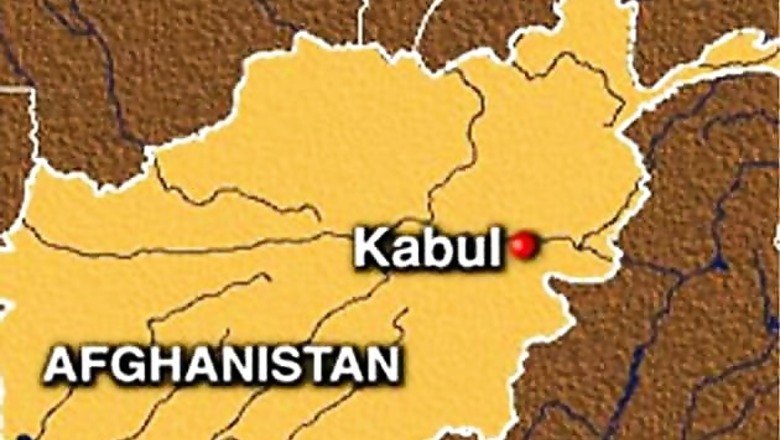
views
Washington: The Taliban's suspension of preliminary peace talks is a tactical move reflecting internal tensions, US officials believe, rather than a definitive halt to discussions the White House hopes will bring a peaceful end to the war in Afghanistan.
US officials had been bracing themselves for backlash from the militant group following a string of public setbacks that have scandalized and angered Afghans, notably US soldiers' burning of copies of the Koran and the killing of 16 Afghan villagers for which a US soldier is in custody.
Speaking on condition of anonymity, US officials described their assessment of the Taliban's announcement last week suspending participation in initial peace discussions, which have become the centerpiece of the US strategy for holding Afghanistan together when NATO forces withdraw.
"Dialogue with the Taliban was never going to be easy," one US official said. "In these sorts of discussions there is nothing unusual about one side stepping away to make a point."
"Deep breaths, and not hyperventilation, are required here," another official said.
Even before last week's statement, US officials acknowledged the long odds they face with their peace gambit, which is controversial, even at the most senior levels of the US government. More than a year of covert diplomacy has been plagued by fits, starts and U-turns.
The English-language Taliban statement, sent to reporters in Afghanistan last week, came as the White House scrambled to contain damage from recent events in Afghanistan and from angry comments by Afghan President Hamid Karzai, who said he was at the "end of the rope.
Some US officials said they were relieved by the contents of the Taliban statement, which did not include a reference to the Koran burnings or civilian deaths, or announce a decisive withdrawal from the process.
The suspension of its participation in peace talks, the Taliban said in its statement, was a result of the United States' "alternating and ever changing position.
"We must categorically state that the real source of obstacle in talks was the shaky, erratic and vague standpoint of the Americans. Therefore all the responsibility for the halt also falls on their shoulders," the Taliban said.
The White House, seeking to downplay the statement, said the US position, and that of diplomats who have held top-secret meetings with Taliban representatives, had been consistent.
Despite the public setback, US diplomats remain hopeful they can execute over the next few months a series of confidence-building measures designed to lay the groundwork for substantive political negotiations between Karzai's government and the Taliban.
Those steps would include the official opening of a Taliban political office in Qatar, a Taliban statement distancing itself from global terrorism, and the transfer of five Taliban prisoners to Qatari custody from the US military prison at Guantanamo Bay.
US officials have been hoping the peace initiative will gain enough momentum to permit Obama, at a NATO summit in May, to announce that negotiations are underway.
"We have only one goal, opening the door for Afghans to sit down with other Afghans to determine the future of Afghanistan," a third US official said.
Despite the Taliban announcement, Afghan Foreign Minister Zalmay Rasool is due to visit Qatar on April 3-4 in what is supposed to be a stepping stone to executing good faith moves.
POLITICAL SOLUTION
The long-shot diplomacy reflects, in part, deepening American dismay about what can be accomplished in Afghanistan.
The Taliban has been weakened but remains a potent threat to Karzai's wobbly central government and the inexperienced Afghan army. Most foreign combat troops are expected to be gone by the end of 2014.
Yet the peace gambit presents major election-year risks for Obama, as he considers backing an arrangement that would give some degree of power to the Taliban, known for its brutality and extreme interpretation of Islam.
The proposed transfer of the five senior members of the Taliban from Guantanamo, in particular, has raised hackles in the US Congress, where politicians of both parties warn transferred Taliban might somehow strengthen the insurgency.
The Pentagon is leading negotiations with the Qatari government on conditions of that transfer, but no agreement has been reached on safeguards that would satisfy US worries about the senior Taliban slipping away.
Yet chief among many US officials' worries is the possibility the Taliban leadership will withdraw its support for the talks altogether if it comes under too much pressure from hard-liners who oppose those talks.
There have been media reports of fissures appearing within Taliban ranks, possibly triggered by the group's January statement announcing a preliminary deal on the Qatar office and more recent reports of meetings between Taliban commanders and government representatives.
Michael Semple, a former UN official with over two decades of experience in Afghanistan, said the suspension reflected an ongoing debate that threatened to fracture a group which has been remarkably cohesive during its decade-long exile from power.
"There are certainly plenty within the movement who believe this is a fight to the finish," Semple said. "The pragmatists are generally worried that they won't be able to carry the day inside the movement."
Outreach to the West could pit a younger generation of fighters - many of whose adult lives have been colored by the NATO military presence - against older Taliban leaders who do not want to repeat the Taliban government's isolation of the 1990s.
The Taliban's leadership appears to be particularly sensitive about suggestions it is holding negotiations with the Karzai government, which its lower-level fighters have been fighting on the front lines.
That vulnerability may have fueled impatience within the Taliban, who want to see a return of their prisoners as proof they are extracting concessions from the Americans.
"This is a reflection of building frustration at the slowness of the process - they expected some returns by now," Semple said. "Still, the door is very deliberately ajar."














Comments
0 comment